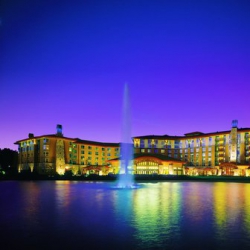A vote by the state’s House Regulatory Reform Committee puts legal online poker one step closer to passage in Michigan. The Michigan House’s chief regulatory committee voted 12-3 to pass the measure.
Committee Chairman Brandt Iden has pushed an online gambling bill throughout 2017. Now, it appears that House Bill 4926 will receive a vote on the House floor sometime in early 2018.
While Rep. Iden’s bill is making its way through the Michigan House of Representatives, State Senator Mike Kowall introduced a companion piece of legislation to the Michigan Senate recently. Experts note that Kowall’s Senate Bill 203 will face stiff opposition, due to clauses which favor commercial casino operators over tribal casinos, S 203 shows that the momentum toward online poker is real.
Mike Kowall’s Senate Bill 203
Mike Kowall’s bill favors commercial casinos like Greektown Casino and MGM Detroit by allow those venues to launch online poker portals immediately upon passage of a new iGaming law. Michigan’s 13 tribal casinos could do the same, but due to the way the 1988 Indian Gaming Act reads, they would have to give up their sovereign immunity under their gaming compacts to do so.
That will not happen, so the bill effectively would allow the commercial casinos to receive a long jump start on launching casinos. Meanwhile, Michigan’s Native American tribes would have to renegotiate their tribal gaming compacts with the State of Michigan.
Commercial v. Tribal Casinos
Earlier this year, when Rep. Iden and Sen. Kowall introduced similar legislation, the leading tribal gaming authorities called for the state to impose a 5-year moratorium on the ability of commercial casinos to launch online poker sites. If that were to happen, the tribal casinos would have a 5-year window to negotiate changes to their gaming compacts with the Michigan governor. Alternately, the tribes would gain the ability to launch online card rooms years before their commercial rivals.
It is an important decision, because the first operators would be able to build a large player database, which would provide operators in on the groundfloor of the Michigan online poker industry a perpetual advantage. Other advantages would accrue, such a brand name recognition, online site rankings, links from affiliates and gaming media sites, and the ability to launch partnerships with the best online poker brands.
5-Year Delay on Michigan Online Poker?
MGM Detroit and Jack Detroit Casino-Greektown would balk at such measures, so HB 4926 and S 203 are expected to touch off a massive lobbying battle between the two sides. The commercial casinos would have a good argument, because a 5-year moratorium would put
Michigan’s online poker industry at a disadvantage against nearby states like Ohio or Indiana, which could pass similar legislation and build up their own industries years in advance of Michigan. While Michigan gamblers would have to drive to those states of online poker, Michigan residents living along the borders of Indiana or Ohio could build habits with long-lasting consequences.
With a built-in controversy from the outset, Brandt Iden and Mike Kowall might have a difficult time convincing a majority of their lawmaking colleagues that Michigan online poker is a good idea.
Anti-Online Gambling Activists
Those who want to ban all online gambling also might place roadblocks for the effort. Sheldon Adelson of the Las Vegas Sands Corporation launched a 50-state campaign to ban online gambling in the United States. Adelson created the Coalition to Stop Internet Gambling (CSIG), which fights at the state level to ban online gambling. At the federal level, Adelson recruited Senators Lindsey Graham, Marco Rubio, and Dianna Feinstein to back Restore America’s Wire Act, which would eliminate all online gambling.
Adelson’s stated goal is to eliminate predatory gambling and protect American youths from gambling addiction, but given the fact Sheldon Adelson has made more money from gambling than anyone in world history, the LVS founder’s motives have been called into question by the online gambling media. Instead, the gaming executive’s detractors claim he is using concern for gambling addicts as an excuse to eliminate a potential rival.
John Pappas of the PPA
As a general rule, online gambling debates at the state level involve hearings with people like Prof. John Kindt, a devote anti-gambling activists, debates John Pappas, the head of the Poker Players Alliance. That is what happened in September 2017, when Pappas appeared before the House Regulatory Reform Committee.
In that appearance, John Pappas said, “They’re coming here to Michigan to tell you all that you can’t do mobile gaming, but they’re ok doing mobile gaming in their own state. They’re also seeking to stop other states from offering mobile gaming and that doesn’t seem very fair.”
This is not Mike Kowall’s first attempt to promote online gambling in Michigan. In April 2016, Kowall introduced SB 889, also known as the Lawful Internet Gambling Act (LIGA), which would have legalized online casinos and online poker sites, while imposing a $5 million licensing fee for up to 8 operators. LIGA failed to receive widespread support.

